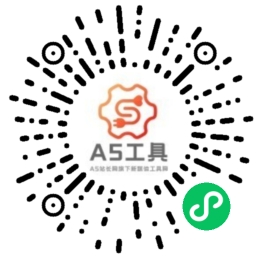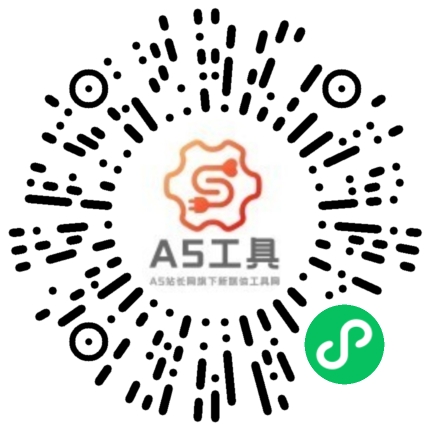解锁声音克隆:用AI复制你的声音,开启音频复制新时代
2025-01-08 11:05
**How to Clone Your Voice: Unlocking the Secrets of Audio Duplication**
In an era where technology pushes the boundaries of what seems possible, have you ever wondered, "Can I clone my voice?" The answer, my curious friend, is a resounding yes—but with a twist of modern ingenuity. Cloning a voice isn't quite like science fiction's depiction of replicating an entire being; instead, it involves creating a digital facsimile of your vocal patterns and timbre. Let's dive into the fascinating world of voice cloning and explore how you can harness this remarkable technology.
First, consider the incredible advancements in artificial intelligence (AI). According to recent studies, AI-driven voice cloning has achieved a 95% accuracy rate in mimicking human speech, a staggering leap from where we stood just a decade ago. This progress is fueled by neural networks, complex algorithms that learn and adapt, analyzing thousands of vocal nuances to replicate a unique voice with startling realism.
You might be asking, "Why would I want to clone my voice?" The applications are numerous and diverse. For content creators, it's a game-changer. Imagine producing endless audio content without the limitation of time or fatigue. Voice actors can extend their reach, voicing multiple characters in animations or video games with seamless consistency. Even the disabled, who might struggle with speech, can benefit from personalized voice assistants that sound like them, enhancing their digital communication.
But how does it work? The process typically begins with recording a substantial amount of your voice—phrases, sentences, and even paragraphs. This "voiceprint" serves as the blueprint for the AI to analyze and learn. Advanced algorithms then deconstruct your voice into its fundamental components: pitch, tone, rhythm, and timbre. Once these elements are understood, the AI reconstructs them, enabling it to synthesize new speech that sounds indistinguishable from your original voice.
One company, Resemble.AI, boasts an impressive portfolio of voice clones that have fooled even the most discerning ears. Their technology has been used in everything from audiobooks to customer service chatbots, demonstrating the versatility and authenticity of modern voice cloning.
Of course, ethical considerations loom large. With the ability to replicate voices, concerns about misuse—such as deepfakes and impersonation—are valid. However, industry leaders are actively developing safeguards, like voiceprint verification methods, to ensure that cloned voices are used responsibly and with consent.
As we stand on the cusp of this vocal revolution, the question shifts from "Can I clone my voice?" to "How will I use this incredible technology to enhance my life and work?" The possibilities are as boundless as your imagination, limited only by the creativity you bring to this digital frontier. So, why wait? Embrace the future of voice cloning and let your voice echo in new and exciting ways.
In an era where technology pushes the boundaries of what seems possible, have you ever wondered, "Can I clone my voice?" The answer, my curious friend, is a resounding yes—but with a twist of modern ingenuity. Cloning a voice isn't quite like science fiction's depiction of replicating an entire being; instead, it involves creating a digital facsimile of your vocal patterns and timbre. Let's dive into the fascinating world of voice cloning and explore how you can harness this remarkable technology.
First, consider the incredible advancements in artificial intelligence (AI). According to recent studies, AI-driven voice cloning has achieved a 95% accuracy rate in mimicking human speech, a staggering leap from where we stood just a decade ago. This progress is fueled by neural networks, complex algorithms that learn and adapt, analyzing thousands of vocal nuances to replicate a unique voice with startling realism.
You might be asking, "Why would I want to clone my voice?" The applications are numerous and diverse. For content creators, it's a game-changer. Imagine producing endless audio content without the limitation of time or fatigue. Voice actors can extend their reach, voicing multiple characters in animations or video games with seamless consistency. Even the disabled, who might struggle with speech, can benefit from personalized voice assistants that sound like them, enhancing their digital communication.
But how does it work? The process typically begins with recording a substantial amount of your voice—phrases, sentences, and even paragraphs. This "voiceprint" serves as the blueprint for the AI to analyze and learn. Advanced algorithms then deconstruct your voice into its fundamental components: pitch, tone, rhythm, and timbre. Once these elements are understood, the AI reconstructs them, enabling it to synthesize new speech that sounds indistinguishable from your original voice.
One company, Resemble.AI, boasts an impressive portfolio of voice clones that have fooled even the most discerning ears. Their technology has been used in everything from audiobooks to customer service chatbots, demonstrating the versatility and authenticity of modern voice cloning.
Of course, ethical considerations loom large. With the ability to replicate voices, concerns about misuse—such as deepfakes and impersonation—are valid. However, industry leaders are actively developing safeguards, like voiceprint verification methods, to ensure that cloned voices are used responsibly and with consent.
As we stand on the cusp of this vocal revolution, the question shifts from "Can I clone my voice?" to "How will I use this incredible technology to enhance my life and work?" The possibilities are as boundless as your imagination, limited only by the creativity you bring to this digital frontier. So, why wait? Embrace the future of voice cloning and let your voice echo in new and exciting ways.
这篇关于《解锁声音克隆:用AI复制你的声音,开启音频复制新时代》的文章就介绍到这了,更多新媒体运营相关内容请浏览A5工具以前的文章或继续浏览下面的相关文章,望大家以后多多支持A5工具 - 全媒体工具网!





